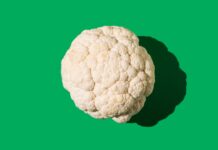Crohn’s disease is an inflammatory bowel disease (IBD) that causes inflammation in any part of the gastrointestinal tract. Managing this condition often involves medication, but dietary protein plays a crucial role in gut healing and symptom control. Individuals with Crohn’s frequently require higher protein intake than the general population because their bodies use it rapidly for tissue repair.
Why Protein Matters for Crohn’s Disease
Protein is essential for repairing the gut lining. It contains amino acids, the building blocks of protein, which regenerate cells in the gut’s mucosal barrier. A stronger gut lining minimizes symptoms, improves nutrient absorption, and reduces flare frequency.
Malnutrition is a common concern in IBD, affecting an estimated 20-85% of individuals. Frequent diarrhea shortens food processing time, making adequate nutrient intake challenging. Sufficient protein intake, alongside other treatments, can help mitigate this issue.
How Much Protein Do You Need?
Adults with active Crohn’s should aim for 1.2 to 1.5 grams (g) of protein per kilogram (kg) of body weight daily. In remission, 1 g per kg is often sufficient. Individuals undergoing surgery may require 1.6 to 1.8 g per kg due to increased healing demands.
Adjust protein intake based on symptom severity. Working with a registered dietitian specializing in gut health can help tailor a personalized plan.
Top 5 Protein Sources for Crohn’s Disease
Choosing easily digestible protein sources is crucial, especially during flares. Here are five options:
-
Edamame: Soybeans harvested before ripening are versatile and gentle on the digestive system, producing less gas than other legumes. One cup of cooked edamame provides 18.4 g of protein.
-
Greek Yogurt: Thick, protein-rich, and containing probiotics, Greek yogurt supports gut health. Choose lactose-free options if needed. A ¾-cup serving contains 14.9-17.3 g of protein.
-
Nut and Seed Butters: Well-tolerated by many with Crohn’s, nut and seed butters offer a convenient protein source. Two tablespoons of peanut butter provide 7.1 g, while almond butter contains 6.7 g.
-
Fish: Salmon, anchovies, and sardines are excellent protein sources rich in omega-3 fatty acids, which may support gut health. A 3-ounce serving of salmon has 17.3 g of protein, while sardines provide 7 g per ounce.
-
Chicken or Turkey: Versatile and widely available, poultry is generally well-tolerated. Avoid high-heat cooking methods like grilling to minimize inflammation. A 3-ounce serving of chicken breast provides 19.1 g of protein, while turkey offers 20.1 g.
Working with a Dietitian
If you don’t already have a registered dietitian specializing in gut health and chronic conditions, consider seeking one out. Tailored nutritional approaches can ease symptoms and improve quality of life. A dietitian can help you meet protein targets, especially during flares or post-surgery.
Key Takeaways
Inflammation in Crohn’s disease can damage the gut lining. Adequate protein intake supports healing and symptom management. Prioritize easily digestible protein sources, and adjust intake based on symptom severity. Working with a dietitian can optimize your nutritional approach for long-term gut health.
Editorial Sources:
Everyday Health follows strict sourcing guidelines to ensure accuracy. Content is based on peer-reviewed studies, board-certified experts, patient experiences, and reputable institutions.
Resources:
- Mayo Clinic: https://www.mayoclinic.org/diseases-conditions/crohns-disease/symptoms-causes/syc-20353304
- Frontiers in Nutrition: https://www.frontiersin.org/articles/10.3389/fnut.2021.772242/full
- Nature: https://www.nature.com/articles/s41598-024-09355-8
- JDS Communications: https://www.jdscommunications.org/2022/09/19/bioactive-bovine-whey-protein-extract-improves-intestinal-barrier-function-in-vitro/
- Canadian Digestive Health Foundation: https://cdhf.ca/health-info/nutrition-and-gut-health/
- Crohn’s & Colitis Foundation: https://www.crohnscolitisfoundation.org/
- Nutrients: https://www.mdpi.com/2072-6643/12/1/165
Meet the Experts:
- Ira Daniel Breite, MD: Board-certified internist and gastroenterologist, Associate Professor at the Icahn School of Medicine at Mount Sinai.
- Elizabeth Millard: Freelance health writer, ACE Certified Personal Trainer, Yoga Alliance Registered Yoga Teacher, trained in obesity management
